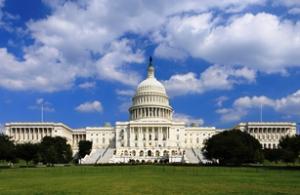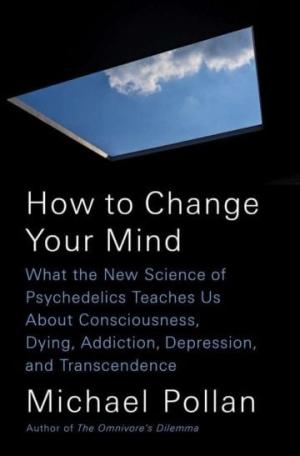It's the first G7 country to do so.
Meet the "iron law of prohibition."
The foodie author serves up a heaping platter of mind-bending science and history.
This helps explain why they are increasingly seen as a valuable treatment for psychiatric disorders such as depression, anxiety, and addiction.
The congressional shield for medical marijuana states remains alive, New York announces it will add opioid use as a qualifying condition for medical marijuana, and more.
Two legal marijuana markets are facing some growing pains, the State Department speaks out on Bangladeshi drug war killings, and more.
The Justice Department is once again likely to be barred from using its funds to go after state-legal medical marijuana, a broad coalition opposes the fast-moving SITSA Act, Portugal's parliament approves medical marijuana products, and more.
Arizona Republicans go one way, Texas Republicans go another; the House passes the SITSA Act, New York will allow medical marijuana for opioid use, and more.
A second acting DEA administrator is set to resign, New York City Mayor de Blasio has a plan to reduce Big Apple marijuana arrests, the Canadian legalization bill heads for the goal line, and more.
Canada has become the second country to legalize marijuana after final votes in parliament Tuesday, the Supreme Court agrees to hear an Indiana asset forfeiture case, Eleanor Holmes Norton files a bill to allow marijuana in public housing in states where it's legal, and more.
With final approval by the Senate Tuesday night, the Canadian parliament has legalized marijuana. That makes Canada the second country to legalize marijuana (after Uruguay), with what will be the world's second-largest legal marijuana market (after California).
Canada also becomes the first G7 country to free the weed. While nine US states and the District of Columbia have also legalized marijuana, it remains illegal under federal law here.
The move, fulfilling a campaign promise by Prime Minister Justin Trudeau and the ruling Liberal Party, puts an end to nearly a century of marijuana prohibition in the Great White North. It didn't come without a struggle, with Conservative senators seeking to delay the measure and succeeding in pushing back the actual rollout date from a once-promised July to what Trudeau announced Wednesday would be October 17.
Under the Cannabis Act, people 18 and over (19 in some provinces) will be able to legally possess up to 30 grams of pot in public, and each household can grow up to four plants. The House of Commons and the government turned back a Senate amendment that would have allowed provinces to ban home cultivation.
The law retains criminal penalties for possession of more than 30 grams or growing more than four plants, and includes an especially harsh provision mandating up to 14 years in prison for sales to minors.
Each province will have its own scheme for handling sales, with some considerable variation. In Ontario and New Brunswick, for instance, sales will be handled by the province, while in most other provinces, sales will be handled by the private sector or private-public collaborations. Marijuana will also be available for sale online.
But Canadians will have to wait for edibles. Marijuana-infused foods will not be available for purchase for some months until the government develops regulations for them.
Marijuana is already big business in Canada, generating an estimated $4.5 billion in sales in 2015, and Canadian marijuana producers are already geared up to produce a huge legal marijuana crop -- in fact, maybe too huge. The two largest producers, Aurora Cannabis and Canopy Growth, are set to produce a million pounds each, while second-tier producers will be adding to a possible glut.

Liberal Prime Minister Justin Trudeau has fulfilled a campaign promise. (Creative Commons)
But those are worries for down the road. Tuesday evening for was for celebrating.
"It's been too easy for our kids to get marijuana -- and for criminals to reap the profits. Today, we change that," a triumphant Trudeau tweeted just after the final vote.
"We've just witnessed a very historic vote that ends 90 years of prohibition," Liberal Senator Tony Dean told reporters. "It ends 90 years of needless criminalization, it ends a prohibition model that inhibited and discouraged public health and community health in favor of just-say-no approaches that simply failed young people miserably."
Not everyone was pleased. Senator Leo Housakos, a Quebec conservative, tweeted forebodingly that passage of the law would be "catastrophic for Canadian generations to come."
But while Canadian conservatives foresaw disaster, American activists saw a model to emulate.
"Canada should be applauded for taking bold and decisive steps towards ending the failed prohibition of marijuana," said Hannah Hetzer, Senior International Policy Manager for the Drug Policy Alliance. "Canada's progress will galvanize support for drug policy reforms in the US and all around the world."
Hetzer also lauded Canada's federalist approach to the issue and called for redressing the damage done to individuals by pot prohibition.
"Canada's decentralized system will give provinces the freedom to tailor marijuana legalization to their local needs and contexts, allowing us to study and learn from the many different models that will emerge," she said. "Canada should ensure that the harms of marijuana prohibition are rectified, especially by expunging people's marijuana arrest records and by investing in communities most harmed by prohibition."
"This is a historic step forward for the movement to end marijuana prohibition," said Marijuana Policy Project spokesman Mason Tvert. "We commend the members of Parliament and the prime minister for their extraordinary demonstration of leadership on this issue. Canada will set a great example for countries that are considering similar reforms, and it will inspire much-needed debate in those that are not."
While the US states have taken the lead, it's an end to federal prohibition that is required, said Tvert. "It is time for the US to take similar action and adopt a more rational federal marijuana policy. There has been a lot of positive movement in Congress lately, so hopefully, members will be inspired to finally address this issue head-on, as Canada has."
back to top
By the end of 2013, the country's quiet opioid addiction crisis was no longer so quiet. Opioid overdose deaths that year topped 16,000, more than four times the same statistic for 1999. That prompted a number of measures at the state and federal level to rein in opioid prescriptions, including a move by the DEA in October 2014 to tighten its policies around some of the most commonly prescribed opioids.

Dark Web fentanyl sales rose after the DEA restricted some prescription opioids. (Creative Commons)
The new DEA policy -- aimed at popular opioids such as Vicodin and Lortab -- imposed restrictions on doctors' prescribing and made it more difficult for patients to get refills. In one sense, the policy was a success:
Prescriptions for those drugs decreased almost immediately. But new research adds to an increasing body of evidence that restricting opioid prescribing has not solved the opioid crisis but instead worsened it.
Since the DEA policy shift, opioid overdose deaths continued to grow with more than 40,000 fatal opioid overdoses in 2016. And while prescription opioid overdose deaths have slightly decreased -- there were about 14,000 that year -- overdose deaths from heroin and non-prescription synthetic opioids such as fentanyl went through the roof. Heroin and illicit synthetics accounted for nearly two-thirds of all opioid overdose deaths in 2016.
In the new study, published this week in the British Medical Journal, researchers examining the impact of the DEA policy shift found evidence that while the change indeed lowered prescribing rates for the opioids in question, it was also linked to an increase in illicit online sales of those drugs in Dark Web drug markets.
The researchers used software called DATACRYPTO to crawl encrypted Dark Web marketplaces where people can anonymously buy damned near anything, from drugs to guns to credit card numbers. DATACRYPTO harvested data on which drugs were for sale, their country of origin, and the number of customer comments on each seller's comments page. Researchers used that last figure as a proxy for how much of a drug that seller sold. They examined sales of prescription opioids, sedatives, stimulants, and steroids, as well as heroin. It was only with prescription opioids that they found a significant Dark Web sales bump.
Here's what they found: "The sale of prescription opioids through US cryptomarkets increased after the schedule change, with no statistically significant changes in sales of prescription sedatives, prescription steroids, prescription stimulants, or illicit opioids."
According to their data, prescription opioids doubled their market share of U.S. Dark Web drug sales thanks to the DEA policy change. By July 2016, opioids represented 13.7% of all drug sales in U.S. cryptomarkets, compared with a modeled estimate of 6.7% of all sales.
While the researchers were careful to not make claims of causation -- only correlation -- their conclusion speaks for itself: "The scheduling change in hydrocodone combination products coincided with a statistically significant, sustained increase in illicit trading of opioids through online US cryptomarkets. These changes were not observed for other drug groups or in other countries. A subsequent move was observed towards the purchase of more potent forms of prescription opioids, particularly oxycodone and fentanyl."
Not only is the DEA policy change linked to increased Dark Web opioid sales, it is also linked to a move toward more powerful, and thus more dangerous, opioids. The researchers noted that while fentanyl was the least purchased Dark Web opioid in the summer of 2014, it was the second most frequently purchased by the summer of 2016. Fentanyl killed as many people as prescription opioids that year.
This study -- one of the few that examines supply reduction (as opposed to demand reduction) as a means reducing drug use -- strongly suggests that supply-side interventions carry unintended consequences, especially the resort to more dangerous and more powerful substitutes. The study's authors refer to this effect as "the iron law of prohibition, whereby interventions to reduce supply, such as increased enforcement and changes to drug scheduling, lead to illicit markets dominated by higher potency products."
Perhaps better than restricting opioid prescriptions, which has deleterious impacts on the tens of millions of Americans suffering chronic pain, or other supply-side interventions, would be increased access to addiction treatment, as well as greatly expanded harm reduction measures to try to get people off opioids and keep them alive in the meantime.
back to top
Can psychedelic drugs improve our lives? Michael Pollan thinks so, and he makes a pretty persuasive case in his latest book, How to Change Your Mind: What the New Science of Psychedelics Teaches Us About Consciousness, Dying, Addiction, Depression, and Transcendence.
This is good stuff. Pollan elegantly blends science, medicine, memoir, travel writing and history in a dazzlingly authoritative dive into his subject matter. If you want to read only one book on psychedelics, make it this one.
The subject is something of a departure for Pollan, who has risen to prominence as the consummate foodie, authoring such well-known tomes as The Omnivore's Dilemma, Food Rules, and In Defense of Food. But it's not entirely surprising: In his 2001 The Botany of Desire, Pollan delved into the world psychoactive substance to examine the mutually beneficial relationship between humans and marijuana. (He also described our relationship with apples, tulips, and potatoes.)
In his current effort, Pollan dives into the science of psychedelics, going deep into brain chemistry and the actual mechanisms by which these drugs alter consciousness. Basically, the science suggests, psychedelics damp down the brain's default mode network, the cerebral mechanism that allows us to maintain normal consciousness. When the default mode network is weakened, new neural pathways open up, brain parts that don’t usually communicate with each other start talking, and the going gets weird.
And that opens the door not only for trippy imagery, but also for spiritual epiphanies or, less grandly, coming to terms with oneself and one’s issues. As Pollan reviews the current research taking place in this psychedelic revival, he encounters terminal cancer patients whose closely guided trips help them grapple with their own mortality, spiritual seekers finding enlightenment, and drug users who find themselves able to break noxious addictions.
He also tries psychedelics himself -- something he hadn't done before -- taking LSD, magic mushrooms, and toad venom containing DMT. His description of his experiences is vivid and compelling, and he tries his best to express those ineffable "truths" the psychedelic experience offers. Describing the subjective reality of an acid trip is a difficult feat, and Pollan does better than most.
And speaking of magic mushrooms, who knew that the term was coined by a Time/Life publicist in the 1950s? I didn't. But that was indeed the case as Life editors were putting together the groundbreaking tale of Gordon Wasson's experience eating psilocybe cubensis with Mexican shaman Maria Sabina.
Pollan's book is full of such delicious little tidbits of psychedelic lore and history, including an account of the Stoned Ape hypothesis, favored by some mycophiles, which argues that hominids ingesting magic mushrooms led to the development of human consciousness.
But it also tells the tale of psychedelics as never before, revealing a "secret history" of lost research on psychedelics in the 1950s and 1960s, where thousands of subjects ingested them in more than a thousand scientific experiments. Some of the results were impressive -- LSD appeared to help curb alcoholism, as well as helping people come to terms with mental disorders or terminal illnesses -- but that body of research was largely forgotten as the federal government and scientific establishment led a severe crackdown once Tim Leary and the hippies got ahold of acid.
Naturally, Leary remains the central figure of the 1960s psychedelic scene -- and a highly contentious one -- but one of Pollan’s biggest contributions is showing how psychedelics were busily leaking out of the lab and into the culture at large in ways that had nothing to do with Leary. Hollywood actors and other elites were taking LSD in therapeutic sessions, spreading the word and participating in group sessions that in some cases seemed more like acid parties than therapy sessions.
Still, once Leary shed his researcher's objectivity to become a messianic acid missionary with his slogan of "tune in, turn on, and drop out," and undertook a mission to cure not sick people but the culture itself, it was game over for the first wave of psychedelic research:
"The fact that by their very nature or the way that first generation of researchers happened to construct the experience, psychedelics introduced something deeply subversive to the West that the various establishments had little choice but to repulse. LSD truly was an acid, dissolving almost everything with which in came into contact, beginning with the hierarchies of the mind (the superego, ego, and unconscious) and going from there to society’s various structures of authority and then to lines of every imaginable kind, between patient and therapist, research and recreation, sickness and health, self and other, subject and object, the spiritual and the material. If all such lines are manifestations of the Apollonian strain in Western civilization, the impulse that erects distinctions, dualities, and hierarchies, and defends them, the psychedelics represented the ungovernable Dionysian force that blithely washes all those lines away."
For the past half-century, psychedelics have been making a slow, but now rapidly accelerating recovery from the repression sparked by Leary's proselytizing and the specter of a psychedelicized America. Again, Pollan shines with his explication of the mind-blowing research taking place and the possibilities being opened up. If there was any question that psychedelics are enjoying a scientific and medical renaissance, Pollan puts that to bed.
Yet, in awe of the power of psychedelics, Pollan stops short of calling for their legalization. Instead, he seems to want every trip to be guided, every journey to have a destination. Has he been captured by the very scientists and researchers whose stories he tells? He writes about the spiritual and the psychological, religion and science, and "shamans in white lab coats," but he doesn't want to talk about recreational use of the drugs.
But the psychedelics are here, and they are being used just for fun. The molecule is in our midst and the fungus is among us. Neither is going away nor are they staying in the lab.
How to Change Your Mind is a major addition to the literature on psychedelics. Reading it will blow your mind. Do it now.
back to top
New research suggests that different classes of psychedelic drugs all share the tendency to promote the growth of new brain cells, especially the kind that reach out and forge connections with other brain cells. This finding could help explain both the mind-expanding properties of the drugs and the mechanisms by which they appear to act as valuable treatments for a broad range of psychiatric disorders.
Earlier research had identified the dissociative anesthetic ketamine as promoting growth in key brain cells (as well as being
a fast-acting and effective treatment for depression), but this new research finds similar effects in amphetamine-based psychedelics such as DOI (2,5-dimethoxy-4-iodoamphetamine), ergoline psychedelics (such as LSD), and tryptamines (such as DMT).
Using experiments in cell culture and with animals, researchers led by Dr. David Olson of the University of California at Davis found that various classes of hallucinogenic drugs acted on the structure and function of cortical neurons using the same mechanisms as ketamine. The findings could point to new treatment approaches for depression, anxiety, PTSD, and addiction, the researchers wrote last Tuesday in the peer-reviewed journal Cell Reports.
"The state-of-the-art, prototypical, fast-acting antidepressant is ketamine -- a compound that promotes neural plasticity and repairs circuits involved in mood and anxiety disorders," Olson told MedPage Today. "Our work demonstrates that psychedelics produce comparable effects on neuronal structure and function, providing a potential explanation for why MDMA, psilocybin, and ayahuasca seem to have antidepressant and anxiolytic effects in the clinic."
Using test tubes, as well as rats and fruit fly larvae, the researchers found that all of these classes of psychedelics increased "neural plasticity," the ability to create new connections among brain cells. The drugs all excited the growth of dendritic spines and axons, the cerebral hangers-on that brain cells use to reach out and create connections, or synapses, with other brain cells.
That's the opposite of what happens with depression, anxiety, PTSD, and addiction. The current theory is that these disorders may occur when neurites retract, not allowing brain cells to connect at synapses.
"One of the hallmarks of depression is that the neurites in the prefrontal cortex -- a key brain region that regulates emotion, mood, and anxiety -- those neurites tend to shrivel up," Olson said in a statement.
Olson's research found that the neural plasticity effect found with ketamine was also "remarkably potent" with even very small doses of LSD, which could help explain the popularity of "microdosing" among people seeking happier and more creative lives. Chemical compounds that mimicked psilocybin and MDMA also increased neural plasticity on the same level as ketamine, and that could mean new opportunities for researchers working with psychiatric disorders.
The studies also showed that the effect outlasted the action of the drugs. In rats, for example, psilocybin produced results that lasted for hours after the drug had left the body. Similarly, rats given a single dose of DMT not only saw an increase in dendritic spines similar to ketamine but saw that effect last for 24 hours when the drug itself had been eliminated within one hour.
This is potentially very good news for researchers working on treatments for anxiety, depression, and addiction, which all seem to act on the same brain circuits.
"Prior to this study, there was only one player in town and that was ketamine. This opens up some new doors," Olson said. "As the diversity of chemical structures capable of producing ketamine-like plasticity effects continues to grow, so does my hope that we will find a safe and effective fast-acting treatment for depression," he said.
This article was produced by Drug Reporter, a project of the Independent Media Institute.
back to top
The congressional shield for medical marijuana states remains alive, New York announces it will add opioid use as a qualifying condition for medical marijuana, and more.
National
Senate Panel Approves Medical Marijuana Protections. The Senate Appropriations Committee last Thursday approved an amendment that shields legal medical marijuana operations from federal interference. The amendment to the Justice Department appropriations bill bars the department from using its funds to go after state-legal medical marijuana. A similar measure was approved in the House version of the bill.
Florida
Florida Smokable Marijuana Ban is On Again. The on again-off again ban on state medical marijuana patients using smokable forms of marijuana is on again. A state appeals court ruled Monday that the state's ban will remain in effect "pending final disposition of the merits of (a recent) appeal." A circuit court judge had invalidated the ban, but the state Health Department appealed that decision, and now the ban is on until the case is decided.
Maine
Maine Supreme Court Rules Workmen's Compensation Doesn't Cover Medical Marijuana. In a ruling last Thursday, the state Supreme Court held that employers do not have to pay for medical marijuana under the state's workers' compensation system. In a 5-2 ruling, the court held that federal law takes precedence and that making employers pay for medical marijuana would force them to violate federal law.
New York
New York Health Department of Health Announces Opioid Use to be Added as a Qualifying Condition for Medical Marijuana. The Health Department on Monday announced it will develop a regulatory amendment to add opioid use as a qualifying condition for medical marijuana. "The opioid epidemic in New York State is an unprecedented crisis, and it is critical to ensure that providers have as many options as possible to treat patients in the most effective way," said New York State Health Commissioner Dr. Howard Zucker. "As research indicates that marijuana can reduce the use of opioids, adding opioid use as a qualifying condition for medical marijuana has the potential to help save countless lives across the state." Opioid use joins 12 other qualifying conditions under the state's Medical Marijuana Program. Currently, patients can be eligible if they have been diagnosed with one or more of the following severe debilitating or life-threatening conditions: cancer; HIV infection or AIDS; amyotrophic lateral sclerosis (ALS); Parkinson's disease; multiple sclerosis; spinal cord injury with spasticity; epilepsy; inflammatory bowel disease; neuropathy; Huntington's disease; post-traumatic stress disorder; or chronic pain.
[For extensive information about the medical marijuana debate, presented in a neutral format, visit MedicalMarijuana.ProCon.org.]
back to top
Two legal marijuana markets are facing some growing pains, the State Department speaks out on Bangladeshi drug war killings, and more.

State Department Spokeswoman Heather Nauert calls out the Bangladeshis on drug war human rights violations. (state.gov)
California Pot Shops Will Have Glut of Cheap Weed, Followed By Possible Shortages. Faced with a July 1 start date for new state-mandated safety standards for marijuana products, marijuana retailers are having to move piles of untested product left over from the state's unregulated grey market before that deadline. That means the likelihood of cheap weed deals in the next couple of weeks, but it also means there is likely to be a shortage of tested product in the early days of the new regime because of a lack of certified testing labs and state-authorized legal market providers.
Hemp
Senate Panel Advances Hemp Legalization. The Senate Agriculture Committee on Wednesday passed the 2018 farm bill. The bill includes hemp legalization legislation backed by Senate Majority Leader Mitch McConnell (R-KY), who argued in support of the measure during Wednesday's meeting. It now heads for a Senate floor vote.
Foreign Policy
US Expresses Concern Over Bangladesh Drug War Killings. The United States urged Bangladesh to meet its human rights obligations as it expressed concern over reports that more than 21,000 people have been arrested and 147 killed since the government of Prime Minister Sheikh Hasina launched its anti-drug campaign a month ago. "We urge Bangladesh to conduct thorough and transparent investigations into all credible reports of extrajudicial killings," State Department spokeswoman Heather Nauert said in a statement. "While illegal drugs are a scourge across the world, Bangladesh should ensure its law enforcement respect human rights and that their conduct is consistent with international standards and Bangladesh's own constitution, which includes a presumption of innocence and the right to due process. We look to the Government of Bangladesh to fully meet its human rights obligations," she added. Bangladeshi Home Minister Asaduzzman Khan Kamal brushed the statement aside, insisting that "no extrajudicial killings took place in the ongoing anti-drug drive."
International
Five Years After Legalization, Uruguay Has Marijuana Supply Problems. The country legalized marijuana in 2013, but legal sales only began last year, and the path is still rocky. Pot is supposed to be sold in the nation's pharmacies, but so far, only 14 of about 1,200 have registered to participate, making the black market a more attractive option for some consumers. While Uruguay's law allows individuals to grow for themselves and collectives to grow for their members, the government is in charge of marijuana cultivation for sale at pharmacies, and it has so far licensed only two cultivators. The government sees the problem: "The demand is greater than our productive capacity," said Diego Olivera, head of the Uruguay National Drugs Council. "We have to address that challenge."
back to top
The Justice Department is once again likely to be barred from using its funds to go after state-legal medical marijuana, a broad coalition opposes the fast-moving SITSA Act, Portugal's parliament approves medical marijuana products, and more.

Congress is moving once again to bar the Justice Department from spending funds to go after state-legal medical marijuana.
Senate Panel Approves Medical Marijuana Protections. The Senate Appropriations Committee on Thursday approved an amendment that shields legal medical marijuana operations from federal interference. The amendment to the Justice Department appropriations bill bars the department from using its funds to go after state-legal medical marijuana. A similar measure was approved in the House version of the bill.
Maine Supreme Court Rules Workmen's Compensation Doesn't Cover Medical Marijuana. In a ruling Thursday, the state Supreme Court held that employers do not have to pay for medical marijuana under the state's workers' compensation system. In a 5-2 ruling, the court held that federal law takes precedence and that making employers pay for medical marijuana would force them to violate federal law.
Drug Policy
Broad Coalition Opposes SITSA Act. A coalition of human rights, civil liberties, civil rights, religious, and drug policy reform groups have come out strongly in opposition to HR 2851, the Stop Importation and Trafficking of Synthetic Analogues (SITSA) Act of 2017. The fast-moving bill has already passed out of committee and awaits a House floor vote. The bill is an old-school drug war response to new psychoactive substances that relies heavily on the criminal justice system. "If passed, HR 2851 will broadly expand penalties for drug offenses, concentrate power within the Department of Justice, punish people who lack criminal intent, and overcriminalize certain behavior," the groups said in a letter released on Thursday. "The legislation attempts to address the very real problem of synthetic opioid overdoses in the United States, but we believe that its methods are misguided. Instead of punishing people who use drugs and low-level dealers, legislation should focus on expanding treatment opportunities and targeting the international drug trade."
Sentencing
Rhode Island House Passes Law Lengthening Prison Sentences for Dealers Who Sold Drugs in Fatal Overdoses. The House on Thursday approved "Kristen's Law," House Bill 7715, which creates a new crime of drug-related homicide and imposes penalties of up to life in prison for people who sell drugs linked to fatal drug overdoses. The bill now heads to the Senate.
International
Portugal Parliament Approves Marijuana-Based Medicines. The parliament on Friday overwhelmingly approved a bill to allow marijuana-based medicines, but only after earlier rejecting a proposal to allow patients to grow their own medicine. While Portugal decriminalized drug possession in 2001, it has lagged behind the US and other European countries when it comes to medical marijuana. The bill now goes to President Marcelo Rebelo de Souza to be signed into law.
back to top
Arizona Republicans go one way, Texas Republicans go another; the House passes the SITSA Act, New York will allow medical marijuana for opioid use, and more.

The House has passed a new, old school drug war bill. (Creative Commons)
Poll: Arizona Republicans Still Don't Like Weed. A new poll from OH Predictive Insights finds that nearly three-quarters of state Republican primary voters oppose marijuana legalization. Only 21% were in favor. Still, a marijuana legalization nearly passed statewide in 2016.
Top New York Health Official Says Cuomo Panel Will Endorse Legalization. Dr. Howard Zucker, the state's top health regulator, said Monday a Cuomo administration panel will recommend that the state legalize marijuana. "We looked at the pros. We looked at the cons… the pros outweigh the cons," Zucker said of the panel's work.
Texas GOP Endorses Marijuana Decriminalization, More. At the party's state convention this past weekend, delegates approved platform planks calling for the decriminalization of marijuana possession, support for hemp farming, expanding access to medical marijuana, and calling for the rescheduling of marijuana.
Medical Marijuana
New York Health Department of Health Announces Opioid Use to be Added as a Qualifying Condition for Medical Marijuana. The Health Department on Monday announced it will develop a regulatory amendment to add opioid use as a qualifying condition for medical marijuana. "The opioid epidemic in New York State is an unprecedented crisis, and it is critical to ensure that providers have as many options as possible to treat patients in the most effective way," said New York State Health Commissioner Dr. Howard Zucker. "As research indicates that marijuana can reduce the use of opioids, adding opioid use as a qualifying condition for medical marijuana has the potential to help save countless lives across the state." Opioid use joins 12 other qualifying conditions under the state's Medical Marijuana Program. Currently, patients can be eligible if they have been diagnosed with one or more of the following severe debilitating or life-threatening conditions: cancer; HIV infection or AIDS; amyotrophic lateral sclerosis (ALS); Parkinson's disease; multiple sclerosis; spinal cord injury with spasticity; epilepsy; inflammatory bowel disease; neuropathy; Huntington's disease; post-traumatic stress disorder; or chronic pain.
Drug Policy
House Passes SITSA Act. Over the protests of drug reform and other groups, the House last Friday approved HR 2851, the Stop Importation and Trafficking of Synthetic Analogues (SITSA) Act. The bill has already passed out of committee and awaits a House floor vote. The bill is an old-school drug war response to new psychoactive substances that relies heavily on the criminal justice system. The Drug Policy Alliance called the bill "dangerous" because it grants the Justice Department "broad new powers to ban synthetic analog drugs, decide what the sentences should be, and take away the requirement for Congressional oversight that has been in place for 40 years." The bill now heads to the Senate.
International
France Poll for First Time Finds Majority for Marijuana Legalization. A new poll from the Institut français d'opinion publique (Ifop) for Terra Nova and Echo Citoyen, a think tank and a citizens' political group, for the first time reports a majority for legalization. The poll had support at 51%, with 40% opposed and 9% undecided. The poll marks a "turning point," said Thierry Pech, head of Terra Nova. "French people made the finding that prohibition and repression did not work to preserve the health of users," Pech said. Under current French law, pot possession is punishable by up to a year in jail and a fine of more than $4,000.
back to top
A second acting DEA administrator is set to resign, New York City Mayor de Blasio has a plan to reduce Big Apple marijuana arrests, the Canadian legalization bill heads for the goal line, and more.

NYC Mayor de Blasio announces plan to reduce marijuana arrests, but activists say it's not enough. (Creative Commons)
New York City Mayor Announces New Policy to Reduce Marijuana Arrests. Mayor Bill de Blasio said Tuesday that the NYPD will not arrest many people caught smoking pot under a new policy set to begin September 1. But people on probation or parole or who have open arrest warrants would still be arrested. Around 17,500 people are arrested for marijuana possession each year; de Blasio said the policy shift would turn about 10,000 of those arrests into citations instead.
Advocates Slam Mayor de Blasio's New Marijuana Arrest Plan. The Drug Policy Alliance and VOCAL-NY said the mayor's announced move doesn't go far enough and does not address the racial disparities in arrests that prompted the policy shift in the first place. "It's frustrating that as the New York State Health Department moves toward legalization, the City is continuing its shameful history of racist marijuana enforcement. It is also confusing because the new policy does not appear to address racial disparities at all, which was the issue that supposedly prompted this in-house review," said Civil Rights Campaign Director Nick Encalada-Malinowski and Drug Policy Alliance New York Director Kassandra Frederique. "The exceptions that the Mayor has laid out -- arrests for people on parole or probation, people with criminal records, people with warrants or lacking ID, or for 'officer discretion' -- will compound existing collateral consequences and all but guarantee the status quo of racial disparity continues."
Medical Marijuana
Florida Smokable Marijuana Ban is On Again. The on again-off again ban on state medical marijuana patients using smokable forms of marijuana is on again. A state appeals court has ruled that the state's ban will remain in effect "pending final disposition of the merits of (a recent) appeal." A circuit court judge had invalidated the ban, but the state Health Department appealed that decision, and now the ban is on until the case is decided.
Drug Policy
Acting DEA Head to Step Down. Acting DEA administrator Robert Patterson told staff at the agency Monday he is retiring. Patterson said in an email to staff that he "realized that the administrator of the DEA needs to decide and address priorities for years into the future -- something which has become increasingly challenging in an acting capacity." Patterson is a 30-year veteran of the agency who replaced the previous acting administrator, Chuck Rosenberg. Rosenberg resigned over policy differences with the Trump administration.
International
Canada House of Commons Votes to Legalize Marijuana, Sends Bill Back to Senate. The House of Commons voted 205-82 Monday to approve some Senate amendments to the C-45 legalization bill, sending the bill back to the Senate for continued debate and a final vote. The Commons rejected the Senate's proposed ban on marijuana companies selling branded merchandise and allowing provinces to ban home cultivation.
back to top
Canada has become the second country to legalize marijuana after final votes in parliament Tuesday, the Supreme Court agrees to hear an Indiana asset forfeiture case, Eleanor Holmes Norton files a bill to allow marijuana in public housing in states where it's legal, and more.
Marijuana Policy
Eleanor Holmes Norton Files Bill to Allow Marijuana Use in Public Housing Where It's Legal. Rep. Eleanor Holmes Norton (D-DC) has filed a bill that would allow residents of public housing in states and localities where marijuana is legal to use it at home without fear of being evicted. Under Norton's bill, a person may not be denied federally-assisted housing for the use of marijuana in jurisdictions where medical or recreational marijuana has been legalized. Under Norton's bill, smoking marijuana would be treated the same as smoking tobacco in federally-assisted housing. The bill is not yet available on the congressional website.
Asset Forfeiture
Supreme Court Agrees to Hear Indiana Civil Asset Forfeiture Case. The US Supreme Court has agreed to hear the case of an Indiana man who used the proceeds of his father's life insurance policy to buy a $42,000 Land Rover only to have the vehicle seized after he was caught selling heroin with it. When authorities moved to forfeit the vehicle, Tyson Timbs challenged the action and won in the Grant Superior Court, with the judge finding the vehicle was purchased legally and that its forfeiture would be "grossly disproportionate" to Timb's offense. The Indiana Court of Appeals agreed, noting that the maximum fine for Timbs' offenses was only $10,000 and suggested the seizure amounted to an "excessive fine." The state Supreme Court then reversed, Timbs appealed, and here we are.
Reproductive Rights
Federal Appeals Court Panel Rejects Wisconsin Woman's "Cocaine Mom" Lawsuit. A three-judge panel on the US 7th Circuit of Appeals on Monday dismissed a lawsuit challenging Wisconsin's "cocaine mom" law, which permits the detention of pregnant women who are suspected of abusing drugs. The panel dismissed the case because the woman, Tammy Loetscher, had moved out of the state. A US district court judge last year found the law unconstitutional and issued an injunction barring it from being enforced, but the law has remained in force while the state appealed. The appeals court panel's ruling leaves the law in force for now. "Today's decision means that all women in Wisconsin have to worry that when they seek health care, if there's even a chance they might be pregnant, the state can take them into custody, lock them up in a drug treatment program, a mental hospital or a jail -- whether or not drug treatment is really needed," said Nancy Rosenbloom, director of legal advocacy for the National Advocates for Pregnant Women, which represented Loertscher.
International
Canada Legalizes Marijuana. With final votes in the House of Commons and Senate on Tuesday, the Canadian parliament has approved the marijuana legalization bill, C-45. The bill legalizes the possession of up to 30 grams in public and allows the cultivation of up to four plants per household. It will also allow for regulated and taxed marijuana businesses, with regulations of sales left to the provinces. Provincial and territorial governments need s few weeks to prepare for retail sales, so the actual rollout of legalization is expected to happen in mid-September.
Australia Festival Pill Testing a Success, Should Be Emulated, Report Finds. A study released Wednesday by the Safety and Testing Advisory Service at Festivals and Events finds that pill testing at the Groovin the Moo festival in Canberra in April was "an overwhelming success" and the federal government should take a leadership role in introducing a plan for broader pill testing. "The pilot demonstrated that such an intervention is possible and that people are willing to use the service, despite the limitations arising from the tight timelines, inauspicious physical infrastructure and the lack of dissemination strategies on-site during the festival," the report said. Less than half the drugs tested at the festival were relatively pure.
back to top









